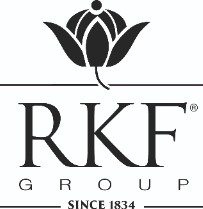
MELIÁ HOTELS INTERNATIONAL POWERS UP FOR EARTH DAY
While tradition mandates powering down for Earth Day on April 22nd, one hotel group is powering up - when it comes to going green. |
 |
MELIÁ HOTELS INTERNATIONAL POWERS UP FOR EARTH DAY
While tradition mandates powering down for Earth Day on April 22nd, one hotel group is powering up - when it comes to going green. |
Catégorie : Asie Pacifique - Économie du secteur
- Développement durable
Ceci est un communiqué de presse sélectionné par notre comité éditorial et mis en ligne gratuitement le 21-04-2022
Enregistré par la société Balcony Media Group
At the same time Meliá Hotels International expands its development footprint across Asia, Spain’s largest hotel group is rolling out a number of sustainability initiatives to minimize its environmental footprint – and being awarded for its efforts.
Meliá was recently named the second most sustainable hotel company in the world in S&P Global’s Corporate Sustainability Assessment (CSA), the world’ most comprehensive sustainability assessment that ranks more than 10,000 companies across all industries. In 2019 and 2020, Meliá ranked first in the global hotel industry, and in 2021 maintained its leadership in Europe and Spain.
“As we continue to expand our presence globally we are committed to working towards a new sustainable and responsible hospitality model, increasing the contribution of the industry to society and helping protect the planet,” said Gabriel Escarrer, CEO of Meliá.
“Our company is now seen as a benchmark for sustainability around the world.”
Meliá properties throughout Asia have embraced core sustainability principles from reducing or entirely eliminating single-use plastics and implementing energy and water conservation measures.
Individual Meliá properties are also rolling out their own environmental programs from creating a more circular hotel economy to helping the environment through collaborative projects.
The 260-key urban hotel Meliá Chiang Mai, which celebrated a grand opening this month, launched with a ‘360° Cuisine’ concept. Dishes served in the dining outlets include produce from the hotel’s organic farm and every possible part of each ingredient is used before leftovers are returned to the farm as compost. Under the program, the hotel’s kitchen works closely with local farmers to help them improve sustainability and encourage ethical production.
Meliá Chiang Mai has partnered with ORI9IN The Gourmet Farm, a nearby organic farm, to grow an array of fruits, vegetables and herbs on a two-acre plot on the broader ORI9IN property for its restaurants, bars and spa.
In Vietnam, Meliá Ba Vi Mountain Retreat follows a similar philosophy. A range of produce is grown in the property’s Balansa organic garden and used in the restaurant, spa, and the staff canteen. Leftovers are returned to the earth and each day the property composts approximately 100 pounds (45 kilograms) of organic and biodegradable waste.
Meliá Koh Samui, a beachfront property in Thailand, is also focusing on sustainable agriculture.
They have added a four-acre organic garden that will do more than just supply the kitchen with an abundance of fresh produce. The garden will be a site for learning and connection. One of the long term goals is to help educate people of the importance of cultivating the land sustainably, through hands-on farming experiences and cooking classes.
Meliá Ho Tram Beach Resort, along Vietnam’s Southern Coast, started their Spice Garden in response to a shortage of vegetables during the ongoing lockdown but the project has grown to encompass a wide variety of different herbs and vegetables.
Like Meliá Koh Samui they have plans in the works to roll out a range of fun, free gardening activities for guests, such as painting pots, flower puzzling, leaf crafts, and making herb-infused essential oils.
Eight Meliá properties throughout Southeast Asia from Meliá Kuala Lumpur to Meliá Bali, as well as Meliá Danang, Meliá Hanoi, Meliá Ho Tram, and Sol by Meliá Phu Quoc (all in Vietnam), have worked with hygiene and cleaning solutions company Diversey on the “Soap for Hope” project.
The hotel soap recycling initiative helps save lives in disadvantaged communities through improving hygiene practices, while also creating livelihoods and minimizing the soap waste created by hotels.
Through the program local people are taught to use a cold-press method, that requires no electricity or water and takes under 10 minutes, to recycle used soap from hotels into reconstituted bars. The fresh soap is then distributed to communities lacking soap or sanitation.
Meliá is also doing its best to ensure their reach ripples further afield. In February, Meliá was named a “Supplier Engagement Leader” by CDP, an international organization specializing in reporting environmental impact.
The hotel group achieved the highest rating in the Supplier Engagement Rate (SER) category in CDP’s annual Climate Change survey. In addition to reducing the emissions Meliá hotels generate directly, Meliá Hotels International works with its suppliers towards a reduction of emissions within the supply chain.
The hotel company also has a mandatory Supplier Code of Ethics that ensures the alignment of suppliers with the sustainability commitments made by the sustainably-minded hotel group.
“It may be Earth Day this month but we believe every day should be Earth Day,” said Ignacio Martin, Managing Director Southeast Asia at Meliá Hotels International.
“Prioritizing sustainability is something that we have been weaving deeper into the fabric of our company, regardless of what day it is.”
|
|





